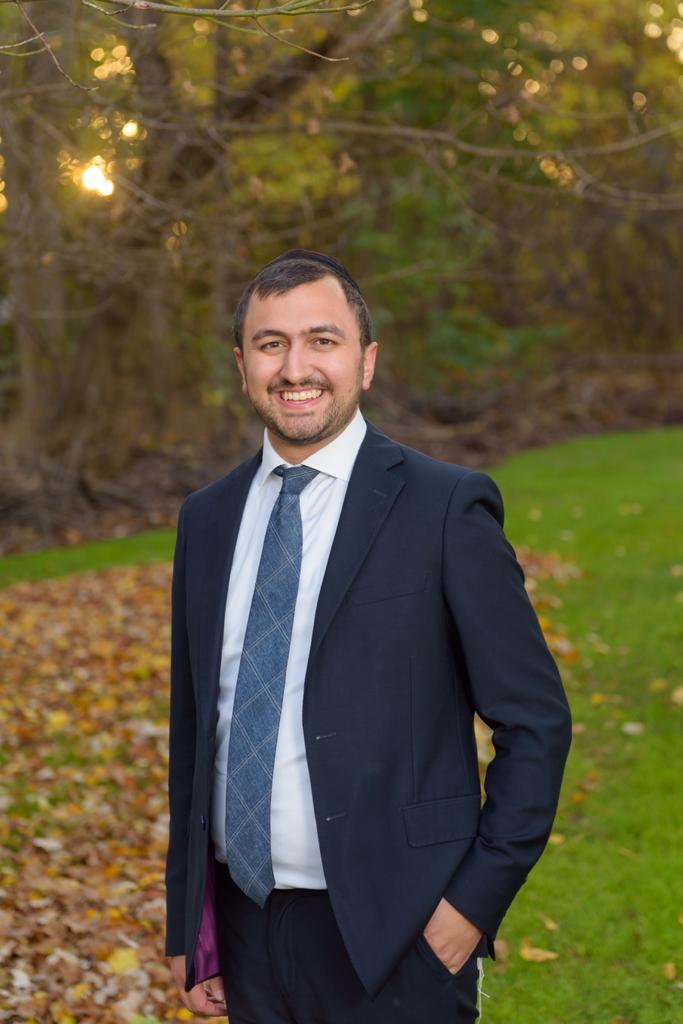
By Rabbi Tzvi Alyesh
We find ourselves nearly a month into the tragic conflict between Israel and Gaza, which was provoked by the sadistic and bloodthirsty acts of Hamas terrorists. The horrors of that day weigh heavily on our hearts, and we continue to pray daily for the return of the hostages still being held in Gaza by Hamas. We pray also for the swift and decisive success of the Israel Defense Forces, a quick resolution to the fighting, and a sustainable peace between Israel and Israel’s neighbors.
As Jews residing far from Israel, we grapple with the question of what we ought to do and how we should feel. Diaspora Jews have contributed extraordinary sums of money to important efforts. Michael Bloomberg himself, for example, matched over $44 million in donations to Magen David Adom, for a total of an $88 million donation to that worthy cause. But many of us, like myself, yearn to do more, to connect even more profoundly with the suffering that our fellow Jews are enduring. We want to share in their pain, to bridge the vast ocean that separates us.
So how can we achieve this deeper connection? We’ve donated, we’ve prayed, and we’ve offered inspiration to those in Israel, yet we still seek a more profound connection with their suffering.
King Solomon, renowned for his wisdom, conveys to us in Kohelet (Ecclesiastes) that there is a time for mourning and a time for rejoicing, among other dichotomies that define the array of emotions we experience throughout life.
“Everything has its season, and there is a time for everything under heaven
A time to be born and a time to die
A time to plant and a time to harvest
A time to kill and a time to heal
A time to wreck and a time to build
A time to weep and a time to laugh
A time to wail, and a time to dance
A time to scatter stones, and a time to gather stones
A time to embrace and a time to shun embraces
A time to seek and a time to lose
A time to keep and a time to discard
A time to rend and a time to mend
A time to be silent and a time to speak
A time to love and a time to hate
A time for war and a time for peace”
(Kohelet 3:1-8)
As we observe the diverse tapestry of people and places worldwide, what strikes us as Jewish individuals is the constant strength of our community life, a resilience that we’ve cultivated from generation to generation (l’dor v’dor), enduring both joyous and challenging moments. Our Jewish community and way of life stand today as robust and vibrant as ever.
Among life’s most arduous trials is the loss of a beloved family member—a parent, sibling, or child. In times of grief, Jewish tradition provides us with a profound framework for approaching these moments. It instructs us on how to come together as a community to offer solace to the bereaved. This framework is known as Shiva, a seven-day period of mourning. During this time, we intentionally set aside our everyday routines to engage with our grief and heartache. We gather, sitting on low chairs, while the broader community and family members visit to console and offer support.
One fundamental aspect of this practice is the mandate to speak about the deceased during Shiva and to highlight their virtuous qualities. We extend a true shoulder to lean on, and upon entering a Shiva house, one can tangibly sense the weight of sorrow in the air. It’s almost as though we are transported into the realm of profound empathy, genuinely understanding the anguish experienced by those who have suffered the loss of a loved one.
Another guiding principle during Shiva is to wait for the grieving individuals to initiate conversations about their loss. We honor their readiness to share and discuss their grief. This is a time when our sensitivity reaches its zenith, and we comprehend the importance of authentically empathizing with those in mourning. It’s not always easy to fully tap into another person’s pain, but through the guidance of Jewish law, we learn how to achieve a deeper understanding and solidarity with our fellow brothers and sisters during their times of sorrow.
For a stark example of how much camaraderie and solidarity mean in Jewish tradition, we turn to a story of Rabbi Chaim Soloveitchik of Brisk (1853-1918). One day, his community fell victim to a devastating conflagration, but by some miracle, the fire halted just before reaching the Rav’s house. But in demonstration of commitment to those in his community who had suffered, the Rav refused the comforts of his own bed, and instead slept in discomfort to share the hardships of his brethren. This act underscores the importance of entering the realm of pain and truly feeling it. By doing so, we can be there for our fellow Jews in a more meaningful way.
So it is incumbent upon us to keep up our efforts to engage with our Israeli friends and colleagues, ask them how they are and what they need. We must keep giving what we can to assist them in their healing. That may be our money or our time or our home cooked meals. Whatever it is, we do not have the option to simply look away and claim discomfort as an excuse for disengagement. We must protect our own mental health, of course, and we ought not subject ourselves to more graphic footage than we can safely process. But the mere fact that we do not live in the Land of Israel (Eretz Israel) does not absolve us of our duties to the People of Israel (Am Israel). We are one nation and one heart (Am Echad v’Lev Echad), and at this moment, our heart is wounded. We must do what we can to heal it.
Written with the assistance of David Benger






